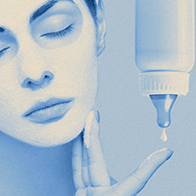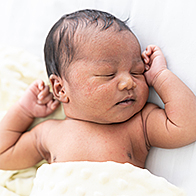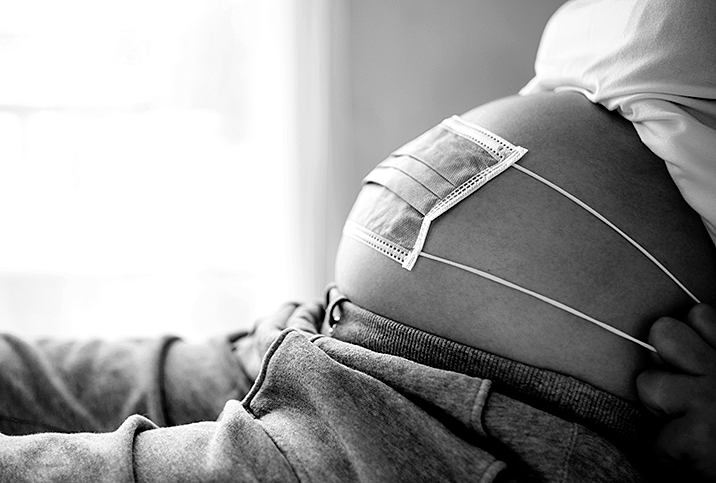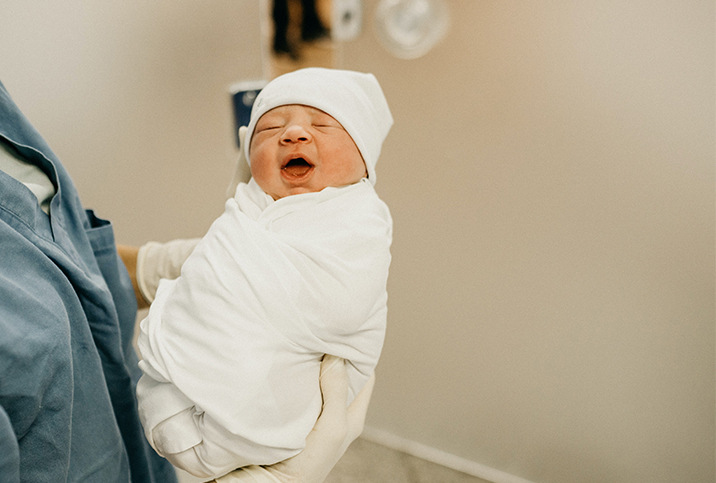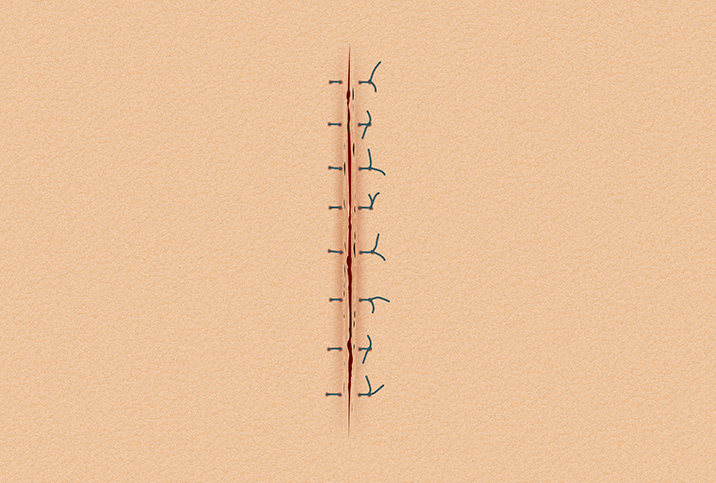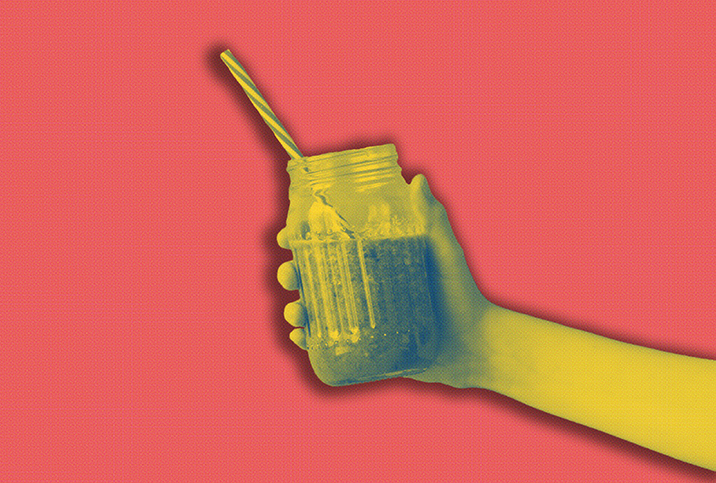Why Do Some Parents Lick Their Newborn Baby?
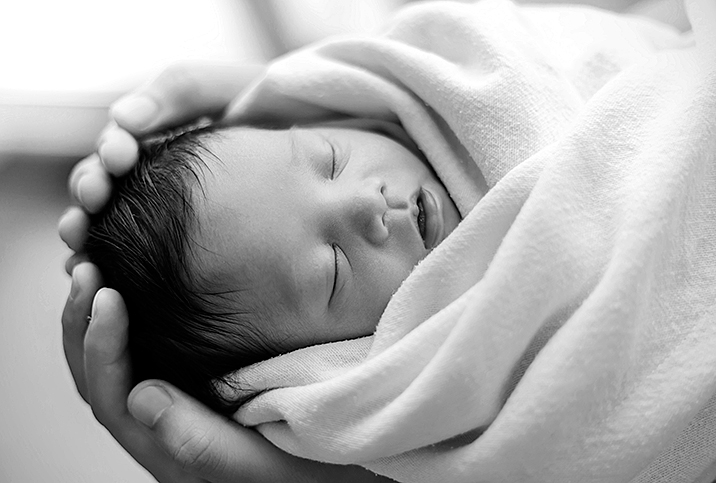
After a photograph of a mother licking the top of her newborn's head went viral on social media, it encouraged other parents to open up about doing the same—or at least feeling the urge.
This engagement in primal urges, including licking newborns and consuming the placenta, has risen in popularity. Doctors agree patients should steer clear of the placenta-eating fad, but what do they say about the urge to lick your baby?
The mammalian baby-licking instinct
From a biological perspective, most mammals lick their young to stimulate them when they're born, which raises the question of whether human beings should engage in baby licking. I remember my cat licking three of her kittens after they were born. It was fascinating to watch her chew through the umbilical cords and eat her placentas purely on her natural instinct.
In the wild, there are benefits to this behavior, as it frees newborns from their amniotic sac, dries their fur to prevent them from getting cold, stimulates their breathing and kicks their digestive system into action.
There may be evolutionary reasons why it's uncommon for humans to lick their newborns. For example, we have hands and opposable thumbs that can do a better job of cleaning our babies. Additionally, unlike cats and other mammals whose labor is relatively short, the contractions in humans' long labors can stimulate the baby on its way out of the birth canal, rendering baby licking unnecessary.
Most mammals lick their young to stimulate them when they're born, which raises the question of whether human beings should as well.
Though references to Tibetan and Inuit cultures licking their newborns have been making the rounds on the internet, the sources for this information are suspect.
In his 1895 paper "Notes on Ethnology of Tibet," anthropologist William Rockhill wrote that Tibetans "do not wash and bathe a newly born child, but the mother licks it as soon as it is born." However, the act of licking newborns is not found in any other literature on Tibet, and 21st-century research into traditional Tibetan birthing practices does not mention licking.
Meanwhile, the only reference to Inuit people licking their newborns comes from the 1950 novel "Top of the World," written by Swiss novelist and racecar driver Hans Ruesch. The author based this fictional account of life among a tribe on the 1933 movie "Eskimo," and had never interacted with an Inuit person himself.
So, why do some humans feel the urge?
"Birth is one of those beautiful reminders that, as civilized as we have become, we are still a part of the wild, unpredictable and messy animal kingdom," said holistic doula Tiffany Grierson. "For some, this animalistic urge will take over in those primal moments after birth. For others, not so much. Both are normal."
These instincts can vary quite a bit between parents, explained Sandra El Hajj, N.M.D., a health professional specializing in preventive global health and commissioner of health, environment and health policies at United Nations Association of Lebanon.
Grierson said that in her observation, licking a baby is "more common with home births, where women have opted out of the medical model and are relying more fully on natural instincts." She explained licking can have the advantage of both providing skin-on-skin contact, as well as the practical element of cleaning at the same time. "Our primal instincts are the foundation for a positive birth and connected parenting experience," she added.
The act of licking might be about bonding as well as cleaning. Baby care expert and president of Nested Bean, Manasi Gangan, speculated "the licking act catalyzes the release of oxytocin (the love hormone)." However, licking and the release of oxytocin has not yet been studied in humans.
"This hormone initiates the bond between the mother and the newborn. It makes the baby feel secure and safe," Gangan continued. Scientists have observed cuddling, touching, kissing and breastfeeding all increase oxytocin levels.
The smell and heartbeat of the mother also help to calm the baby after they've entered the outside world for the first time. "This is why many doctors adopt the kangaroo-style, where the baby is directly placed on the mother's belly to crawl and breastfeed, even before they are cleaned," El Hajj explained.
But is it safe to lick your baby?
"Licking the baby is relatively safe as long as the mother is clean and free from any infection," Gangan said.
If a mother wants to lick her baby, it's important she and the baby are both healthy, El Hajj said. "In most cases, women are tested for anything that could affect the health of a baby during vaginal delivery. So the baby should not carry anything harmful if a mom decides to lick him or her."
The exception is if the baby has meconium (first feces) on their skin, which can occasionally happen if the baby gets distressed in the womb. Doctors and midwives will be monitoring the baby and will inform the parents of this possibility.
Parents should also avoid licking the newborn's eyes, nose and mouth to ensure they don't pass germs to the baby, as their immune system is not yet fully developed.
'Licking the baby is relatively safe as long as the mother is clean and free from any infection.'
It's also important to note that whether they are born via vaginal or cesarean delivery, babies come out covered in blood, amniotic fluid and a protective biofilm called vernix. The only other known mammals born with vernix are seals. This may be a clue to why we don't lick babies and other mammals do.
Vernix helps protect the skin, keep in moisture and regulate body temperature. Vernix also has antibiotic, antimicrobial and antioxidant properties that help protect against infections and pathogens. Because of the benefits vernix provides, the World Health Organization recommends delaying a baby's first bath until 24 hours after birth.
So, if you do decide to engage in any baby-lingus, the goal should not be a full-on bath. You don't want to disrupt that protective biofilm.
At the end of the day, every parent has their own way of greeting their baby when they enter the world. If your instincts tell you to lick your newborn, then it's very likely you're safe to do so, unless your physician tells you otherwise.







